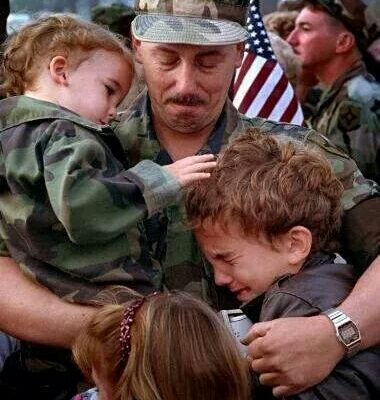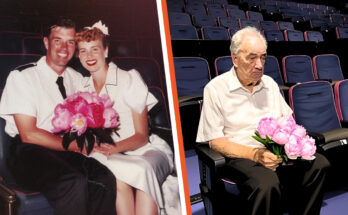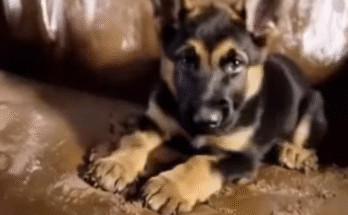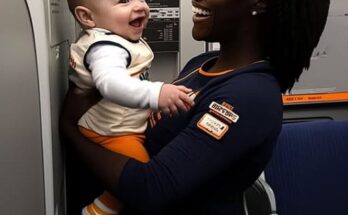I told them I’d be back before their next birthdays.
All three of them stood there on the porch in mismatched pajamas—Mateo clinging to my leg, Jasira half-asleep with her thumb in her mouth, and Amari pretending to be brave, even though his lip was shaking.
My ex-wife stayed inside. She couldn’t watch. We don’t talk much anymore unless it’s about the kids, but when I told her I was being deployed again, she just nodded and whispered, “Don’t tell them too much.”
So I didn’t.
I knelt down and said the usual things. Be good for Mom. Help your sister. Brush your teeth. I kept it light, like I was going away on a long work trip. I didn’t tell them I’d already written goodbye letters and tucked them into a box at the back of my closet. I didn’t tell them I’d updated my will last week.
Amari asked, “Will you be back in time for my science fair?”
I said, “I’ll try, buddy.”
The part that crushed me wasn’t their crying—it was how they tried not to cry. Like they knew I needed them to be strong more than I needed tears. I kissed Jasira’s forehead and whispered that she was my favorite girl in the whole world. I promised Mateo we’d go to the beach when I got back, just him and me.
Then I looked at all three of them one last time, my hands still on Amari’s shoulders, and my chest nearly split open.
Because what I wanted to say was stuck in my throat.
I wanted to say, “I don’t know if I’m coming back this time.”
But instead, I forced a smile and said, “I love you more than all the stars in the sky.”
I drove off before I could change my mind. My old truck rumbled down the street, and the kids grew smaller in my rearview mirror until I couldn’t see them anymore. Truthfully, my vision was too blurry from tears to see much. My ex-wife’s shadow stayed in the window, a thin, unmoving shape. We might not have stayed married, but she knew me well enough to guess what I was really thinking.
An hour later, I found myself at the base, checking in my gear alongside other men and women who also had tight smiles plastered on their faces. Everyone was pretending that this was just another assignment. I kept waiting for someone to say, “Don’t worry, you’ll make it home in one piece,” but no one did. We’d all heard too many stories of one-night missions turning sideways. In the past few months, tensions had been growing in the region they were sending us to, and we’d been briefed that it might get messy. We were going as part of a quick support squad—nothing unusual. But “quick” in the field doesn’t always translate to safety.
That first night on the transport plane, I clutched my dog tags so tight they left an imprint in my palm. Whenever I started feeling that panic creep up my spine, I imagined my kids’ faces: Amari building volcanoes for his science project, Jasira humming lullabies to her stuffed bunny, and Mateo chasing his shadow in the yard. In my mind, I was always home for their birthdays—cutting the cake, clapping loudly, snapping pictures. That image became my armor.
When we landed, I was met with a wave of scorching air. The base camp was in a desert outpost, all dust and stone. Tents, fences, and barbed wire as far as the eye could see. I tried to settle into the routine: sleep in cramped quarters, wake early, go through drills, stay alert. We were there to maintain peace, but tensions were higher than the news was letting on. A local village had reported a new rebel group forming, and every day we heard conflicting reports about who was safe and who wasn’t. Sometimes, a tense situation at the checkpoint would defuse easily. Other times, all it took was one wrong word to send bullets flying. We never really knew which day would be which.
A few weeks in, I got a letter. Not an email—an actual, old-school letter. The handwriting was shaky. Turned out it was from Amari. He was complaining about how his science teacher was strict about the fair’s due date, how he was nervous he wouldn’t finish in time. He asked me if I thought his volcano would look cool with LED lights in the crater. Reading that question made me laugh out loud right in the mess hall. I could picture him rummaging for batteries in the junk drawer at home, determined to impress his teacher. Jasira had doodled a little heart in the corner of the page in pink crayon. Mateo had scribbled something that looked like “I miss you.” It might have been a spaceship drawing, but I chose to believe it said “I miss you.”
I wrote back with words of encouragement, but I never mentioned the mortar attacks near our camp or the tense nights where we didn’t sleep. It felt like I was lying to them again, packing more secrets into my metaphorical backpack. But that was the only way I knew how to protect them—by not letting them worry.
Days turned into weeks, and the mission that was supposed to be short stretched on. New intelligence suggested we’d need more time to stabilize the area. Everyone felt it—the heaviness of waiting, the uncertainty. I made friends with a fellow service member named Roman. He was from a small town in Oklahoma and had two daughters back home. We traded stories in hushed voices, trying to keep spirits up. Roman showed me pictures of his daughters doing silly poses in their softball uniforms. I pulled out the photo of my three kids in matching shirts, all hugging each other. It hurt to look at it, but it kept me going.
One morning, everything went sideways. We were tasked with a routine patrol near a village we’d visited dozens of times without incident. This time, however, we found ourselves pinned down by unexpected fire from the hills beyond. It wasn’t an intense firefight, not at first. We took cover behind a dilapidated wall. The dust kicked up in thick clouds around us. I heard the hum of bullets whizzing past. My heart was pounding so hard, it felt like it might burst out of my chest.
I remember Roman yelling to me, “We gotta move, man! We can’t stay pinned here!” I nodded, adrenaline roaring in my ears. We moved in short bursts, ducking behind rock piles, searching for a safe path out. Suddenly, an explosion from an RPG rocked the ground near us. My body slammed into the ground, my shoulder taking the brunt of the impact. In that split second, thoughts flickered through my mind: Am I about to die? My kids—who’s going to tuck them in? Who’s going to drive them to school?
By some miracle, the wound in my shoulder wasn’t fatal. It hurt like my skin was on fire, but I was still alive. Roman dragged me into better cover, and we waited for backup. Eventually, our support arrived, pushing the attackers back. I was evacuated to a field hospital. After surgery, the doctor told me it would take weeks, maybe months, to fully regain mobility, and I’d likely be sent home once stable.
I remember thinking: I’m actually going home. Despite the pain, relief washed over me. I’d see my children again, maybe sooner than expected. But there was also guilt. It felt strange to leave the others behind, especially Roman and the rest of the squad. Part of me wanted to stay until everyone could come home, but I knew I was in no shape to return to active duty. I was discharged with a medical escort. A nurse helped me onto the plane. My shoulder was wrapped in layers of bandages, and I had a bottle of painkillers rattling in my bag.
On the flight back, I tried to draft a conversation in my head—what to say to my kids about why I was home earlier than planned, why my arm was in a sling. Should I tell them everything? Or keep sugarcoating? My mind drifted to the letters in the back of my closet, the will I had so carefully updated. It hit me that I’d been living like there was no tomorrow, but never really telling them how scared I was. Was that fair?
When I finally stepped off the plane at the local airport, I spotted my ex-wife standing at the security gate. The kids were with her—Amari bouncing on his heels with excitement, Jasira hugging a stuffed giraffe, Mateo waving a little homemade sign that read “Welcome Home, Daddy!” in bright, childish lettering. My knees nearly buckled. I’d been worried about their reaction—would they be frightened by my injury? Instead, they flung themselves into my good arm, ignoring my sling, and squeezed me like they never wanted to let go.
Amari asked, “Daddy, you’re home early. Does this mean you’ll make it to my science fair?”
I swallowed the lump in my throat and said, “I’m home for good, buddy. I might need to go back someday, but for now, I’m all yours.”
They clung to me tighter. My ex-wife stepped forward, eyes filled with relief and maybe a little anger, like she wanted to say “I told you not to worry them,” but also “I’m so glad you’re okay.” I got a simple nod from her before she ushered us all to the car.
That night, back at home, I tucked the kids in. Mateo asked if we could still go to the beach. Jasira asked if I’d missed her as much as she missed me. Amari just looked at me and said, “I’m glad you didn’t die.” That moment shattered me in the best and worst ways—I realized how close I’d come, and how much these children desperately needed me to be around.
In the days that followed, I found those goodbye letters in the back of my closet. I tore them up. Not because I was in denial about the risks of my job, but because I wanted to start fresh—less lying, more honesty. The kids deserved that. I wasn’t going to fill their heads with scary stories, but I wouldn’t hide the truth anymore either. I had to trust that they were strong enough to handle real life, not just the sanitized version.
We went to Amari’s science fair. His volcano was decked out with LED lights, just like he’d imagined. It bubbled over with bright foam, and he was grinning from ear to ear as the judges applauded. Jasira clapped her hands and squealed every time the lava oozed out. Mateo took a photo on my phone. And for the first time in a long while, I felt something in my chest besides fear or regret. I felt hope.
The truth is, we never really know how long we have with the people we love. We can’t predict life’s twists and turns. But if this journey taught me anything, it’s that honesty and love should travel hand in hand. Don’t carry your burdens alone, and don’t pack a backpack full of lies to shield others from what you’re going through. Sometimes, the real strength is in being vulnerable, letting people in, and trusting that they’ll stand by you even when the road is rocky.
I’m still healing—physically and otherwise. But each time I hear my kids giggling from the other room, I thank every lucky star that I made it home. Maybe I wasn’t completely truthful before I left, but I have a second chance to do better, and that’s a gift I won’t waste.
If this story touched you in any way, feel free to share it with others who might need a reminder that life is short, precious, and worth living fully—and honestly. And if it resonates with you, don’t forget to hit that like button. Because sharing our stories and supporting each other is exactly how we grow stronger together.



